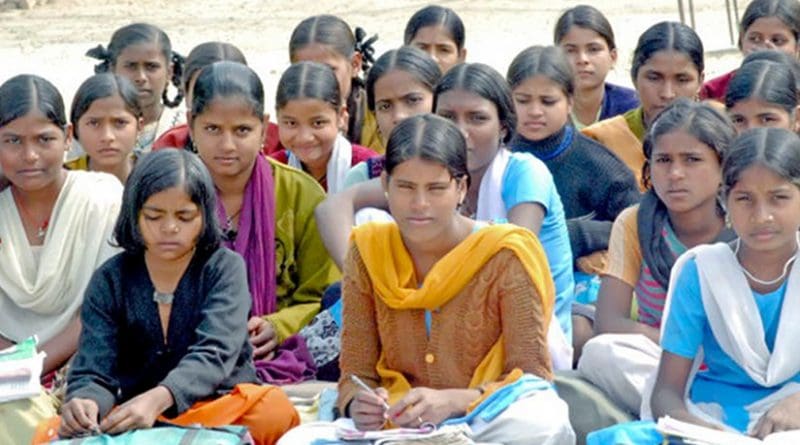Women Are Subjects Supreme: They Must Understand Their Rights And Stand Up – OpEd
By Abheek Mukherjee*
Amb. Bhaswati Mukherjee’s well researched talk on ‘The Journey of the Indian Woman: Change or Status Quo?’ (September 9, India Habitat Centre, New Delhi) was both informative and enjoyable. But to be very frank, I had expected somewhat more from the speaker because firstly, she is a woman and second, because she is a lady with a vast repertoire of diverse experiences.
The topic itself promised so much. By “the journey of the Indian woman” I understood the topic to mean the path Indian woman, through the ages, has traversed. The trials, tribulations, inequalities, denials of life chances, oppressions and indignities that women have suffered over the ages are not the experiences of a single woman: they are the historical underpinning, the peg on which hangs the collective unconscious of contemporary woman. History can only be contextual and explain what women went through over the years; history cannot tell us about a journey that plays out as internal experiences. The real journey is an internal journey of discoveries, of realizations and of meanings that woman has given and continues to give to external triggers that form the efficient cause of her internal world. It cannot be denied that animals too have been at the receiving end of male violence. Yet, we don’t call what they have gone through “a journey”. This is because the brute is incapable of interpreting, of forming mental constructs or of giving any but the most rudimentary meanings to their interactions with the external world. But, there is a subject that dwells inside every woman. Only when the journey of that subject is documented will the story of the journey be told.
There are two reasons why the story has to be the internal story. The first is obvious. Woman, far more than man, “lives her life through the specificity of her own personal experiences” (quoted from The Second Sex). It would have been nice to be told what historical women over the three millennia of change and continuity have said as evidenced in their written records. What man, the predator, has done is well documented. What those experiences are have not been told. Modern Indian women parrot what enlightened men say. They wouldn’t need to if only they had asked themselves why they don’t need crutches contrived by men to speak for themselves. That would involve dwelling in their collective experiences.
The second reason goes to the root of woman’s predicament. How dearly that internal narrative is lacking is obvious from the fact that present day woman seeks her rights from Articles 14, 15, 16 and 21 of the Constitution of India—which, by the way, is a male document. Implicit in this assumption is that if tomorrow parliament, wielding its constituent powers, disregards the Supreme Court in Keshavananad and abrogates Part III of the Constitution or the gruundnorm changes and a new generation abrogates the entire constitution, women may well be deprived of their “rights”. Naturally this is a most unhappy situation for all women, quite apart from it being untenable and obnoxious. Woman’s rights cannot owe to a man-made constitution or even man-evolved custom or usage (such as customary rights in England). If they derive their validity from human creations, they will always be imprisoned by—and by extension, at the sweet mercies of—humans.
Woman is equal to man because she, like man, is ‘subject supreme’. Rights appertain to subjects as natural extensions of subjects; they never inhere to objects. Objects do not have rights except as extensions of a subject. So, a rich man’s wife can very well have rights because she is that man’s object of affection. So it has been with women who have enjoyed rights through the ages. She has enjoyed proxy rights because she has always been somebody’s daughter, somebody’s wife and somebody’s mother: as A L Basham had said so aptly, woman has always been a minor at law. Minors have most rights except the right of executing contracts or being witness to legal documents—exactly what Manu Smriti (quoted by Amb Mukherjee) mandated.
To talk of rights without understanding why rights are natural; to assert rights without knowing why those rights are inalienable and to not know the sacred self that validates those rights is to put the cart before the horse. Indian women still don’t advance this argument. Herein is the damning status quo. It is in the hands of woman, as mother, to temper their sons’ predatory instincts. Modern woman talks about rights for her gender but does nothing to prevent her own little boys from taking those rights away from other women when some of those boys enter civil society as majors. Little, really, has changed.
*Abheek Mukherjee is a Delhi-based lawyer with specialisation in writ law. Comments and suggestions on this article can be sent on: [email protected]

